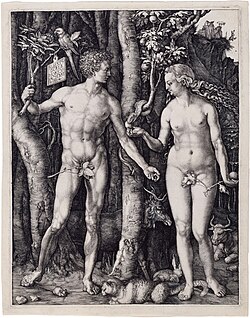| Part of a series on |
| Christianity and gender |
|---|
 |
The stay-at-home daughter (SAHD) movement is a subset of the biblical patriarchy [1] and biblical womanhood movements, particularly within the United States and New Zealand. Adherents believe that "daughters should never leave the covering of their fathers until and unless they are married." [2] This means preparing to be a wife and mother, eschewing education [1] [3] outside the home and a career, [4] [5] and according to Sarah Stankorb writing for Marie Claire , "complete subservience to their father". [5] For most stay-at-home daughters it involves a focus on the "domestic arts" such as cooking, cleaning and sewing. [6] Julie Ingersoll suggests that the purpose of stay-at-home daughters is to "learn to assist their future husbands as helpmeets in their exercise of dominion by practicing that role in their relationship with their father." [7]
The term stay-at-home daughter was popularized by Doug Phillips and his Vision Forum ministry, [2] [5] which has shut down operations after his confession of marital infidelity and allegations of sexual abuse. [8]
The key pioneers of this movement are the Botkin sisters, Anna Sofia and Elizabeth, who in 2005 wrote So Much More: The Remarkable Influence of Visionary Daughters on the Kingdom of God. [2]